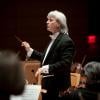
In 2007, she became the first woman to be appointed assistant conductor of the Boston Symphony. She is Shiyeon Sung, and the maestra has been blazing trails ever since. Indeed, the same year as the Boston announcement, Sung also took second place (no first prize was awarded) in the Gustav Mahler Conducting Competition, the very same competition that Gustavo Dudamel won in 2004.
Sung made her Hollywood Bowl debut with the Los Angeles Philharmonic in 2008, with her most recent Bowl appearance last summer, and Southern California audiences will have another opportunity to see the musician April 25–27, when she takes the podium for the first time with Pacific Symphony in a program of Donghoon Shin, Tchaikovsky, and Mozart’s beloved Piano Concerto No. 21 with soloist Yeol Eum Son.
Having studied piano as a child, Sung, who was born in 1975 in Busan, South Korea, won various prizes performing in youth competitions. From 2001 to 2006, she studied orchestral conducting with Rolf Reuter at the Hanns Eisler School of Music in Berlin, continuing her education with advanced conducting studies with Jorma Panula at the Royal College of Music in Stockholm.
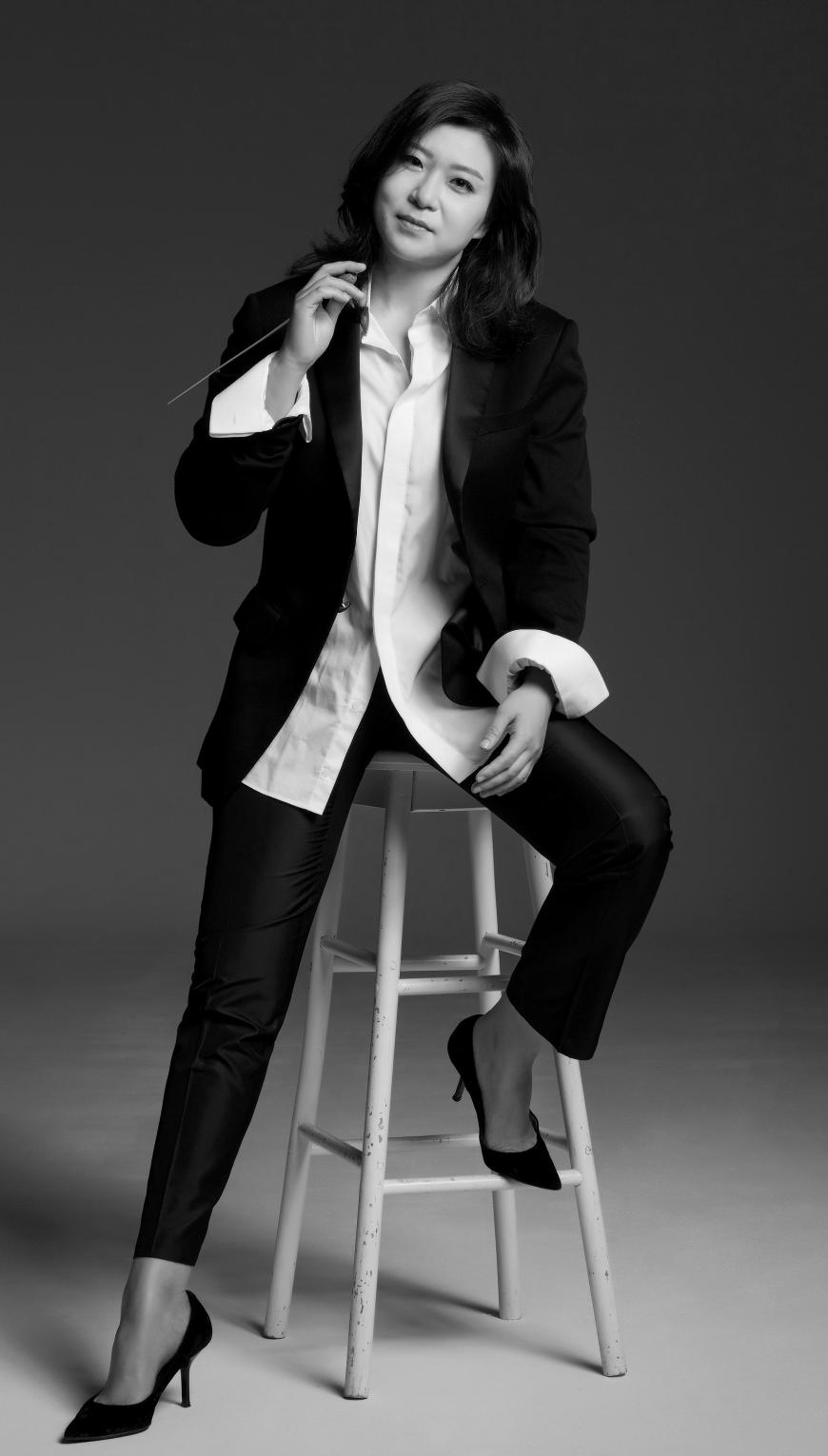
It was also during her three-year tenure in Boston that Sung began a close collaboration with the Seoul Philharmonic, conducting the orchestra’s season-opening concert in 2007. Two years later, the Seoul Philharmonic established an associate conductor’s position especially for her, which she held until 2013. Her list of credits continued to grow as she served as chief conductor of South Korea’s Gyeonggi Philharmonic Orchestra from 2014 to 2017, during which time she led that orchestra to international success.
Upon leaving Gyeonggi, Sung relocated to Berlin, where she now resides, though she continues to be a popular guest in her home country, where she regularly returns to conduct the Korea National Opera and the Seoul Philharmonic. And since 2023, Sung has been principal guest conductor of the Auckland Philharmonia.
SF Classical Voice recently caught up with Sung by Zoom from Detroit, Michigan, where she was making her debut with the Detroit Symphony Orchestra.
Was there music in your family?
No one [in] my family is a musician, but my parents listened always to classical music at home. It was natural that I wanted to play piano at age 4, but I decided to become a conductor [later]. I’m thankful that I didn’t give up. I was 25 in 2001 and thought it was too late — that my colleagues were pretty young.
You’re about to make yet another debut, this time with Pacific Symphony. Let’s talk about the program: Mozart’s Piano Concerto No. 21 and Tchaikovsky’s Symphony No. 6, with Donghoon Shin’s The Hunter’s Funeral as the curtain-raiser. Composed in 2017 for 12 players, Shin’s piece was inspired by Moritz von Schwind’s 1890 woodcut of animals carrying the coffin of a hunter. So, how do you decide on a program?
The Mozart piano concerto was the soloist’s idea. We had a few concerts [together] in Korea, but outside of that country, this is the first time I’m working with Yeol Eum Son.
The orchestra offered me Tchaikovsky’s Sixth Symphony, and there was no reason to refuse this wonderful symphony. Tchaikovsky is one of my favorite composers because you can show everything — conducting skills, your emotions, and your understanding of the structure. [When] you listen to the [Sixth Symphony], you are in the music right away, from the beginning. I like to focus on the bass sounds; it’s great music. I played it a few times with the Konzerthaus Orchestra in Berlin and also with the Seoul Philharmonic.
[Shin’s] piece also goes along with the “Pathétique.” He’s a young composer [who] has some very nice ideas.
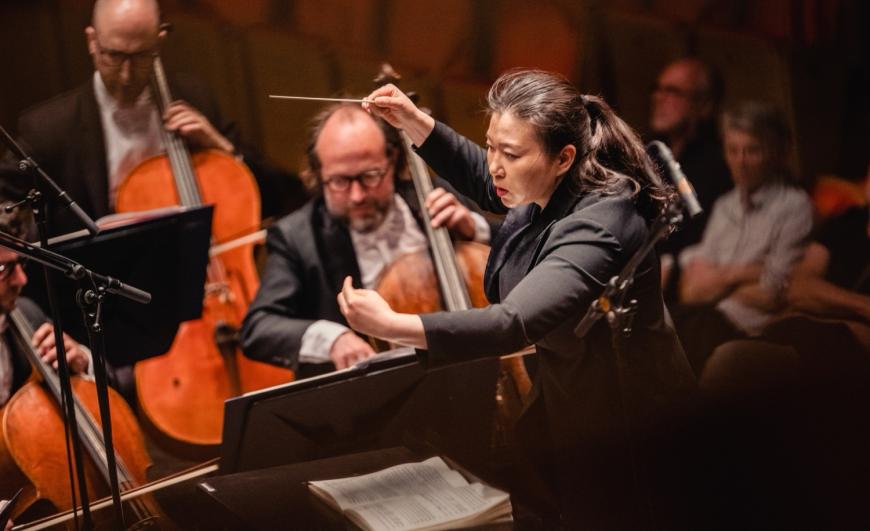
Speaking of Shin and contemporary composers, it appears that you like conducting new music.
When I first started my career, I was not very interested in contemporary music, [but] I have conducted a lot of [new music] in Scandinavia and [by] Scandinavian composers. I learned a lot [because orchestras] always requested one new piece [on each program]. I started slowly to learn, to listen to contemporary music. [I also led] Unsuk Chin’s First Violin Concerto in New Zealand, [where] I’m still with the Auckland Philharmonia. I’m there twice a year.
What makes for good chemistry between a conductor and an orchestra?
I think that chemistry is very intuitive. It’s inexplicable because you can’t practice or prepare for it. Good chemistry happens like magic. You cannot explain how it works. It’s like a relationship between a woman and man: You can never expect [it], but suddenly you feel connected to a human. Chemistry is like that.
I continue studying the score. One good thing is that [by] studying, you can prepare. I start reading the score on piano if I have time. First, I go through a full piece and get an overview. Then, I read through it again, but the important thing [is that] I never practice with a baton. I have always a simulation in my mind.
I use a baton when I’m on the podium. It’s just [that] I hate some conductors that practice in front of a mirror. It brings nothing. [Practicing] without a baton brings more concentration and focus into your mind.
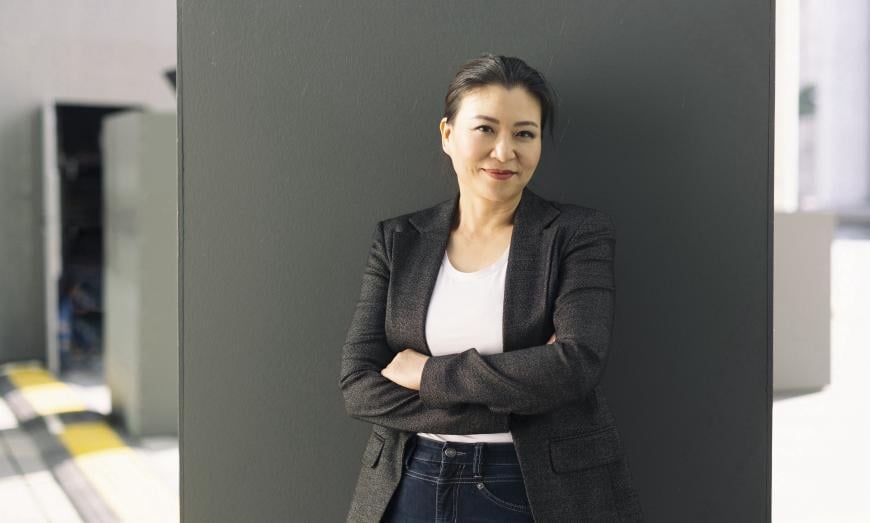
How did winning the Sir Georg Solti International Conductors’ Competition in 2006 impact your career?
It was a great experience, and of course, the competition opened doors for me. Winning allowed me to join the Boston Symphony and provided lot of opportunity. It was a really great choice. I was very fortunate to win the competition. I really considered before it, “Should I go or should I not?” I was still a [conducting] student in school. But you never know when the fortune comes to you.
I understand that you’ve been inspired by some of the great conductors of the past, including Carlos Kleiber, Claudio Abbado, and Wilhelm Furtwängler. Why them, and what about conductors today?
Claudio Abbado was music director of the Berlin Philharmonic when I was student. I attended many rehearsals and concerts [and] learned a lot by watching and listening. The way he communicated with his body language and his eye contact and his elegance — I thought he had the orchestra in his hands and created the music as he wanted it to sound. He appeared to me [to have a] freedom beyond himself. That’s one of my goals; I really want to achieve that.
He inspired me a lot before he died. He’s one of the greatest conductors. Also, I like many conductors today, but if you ask me who inspires me the most, I would stay with the great maestros of the generations before: Kleiber, Herbert Blomstedt, Furtwängler.
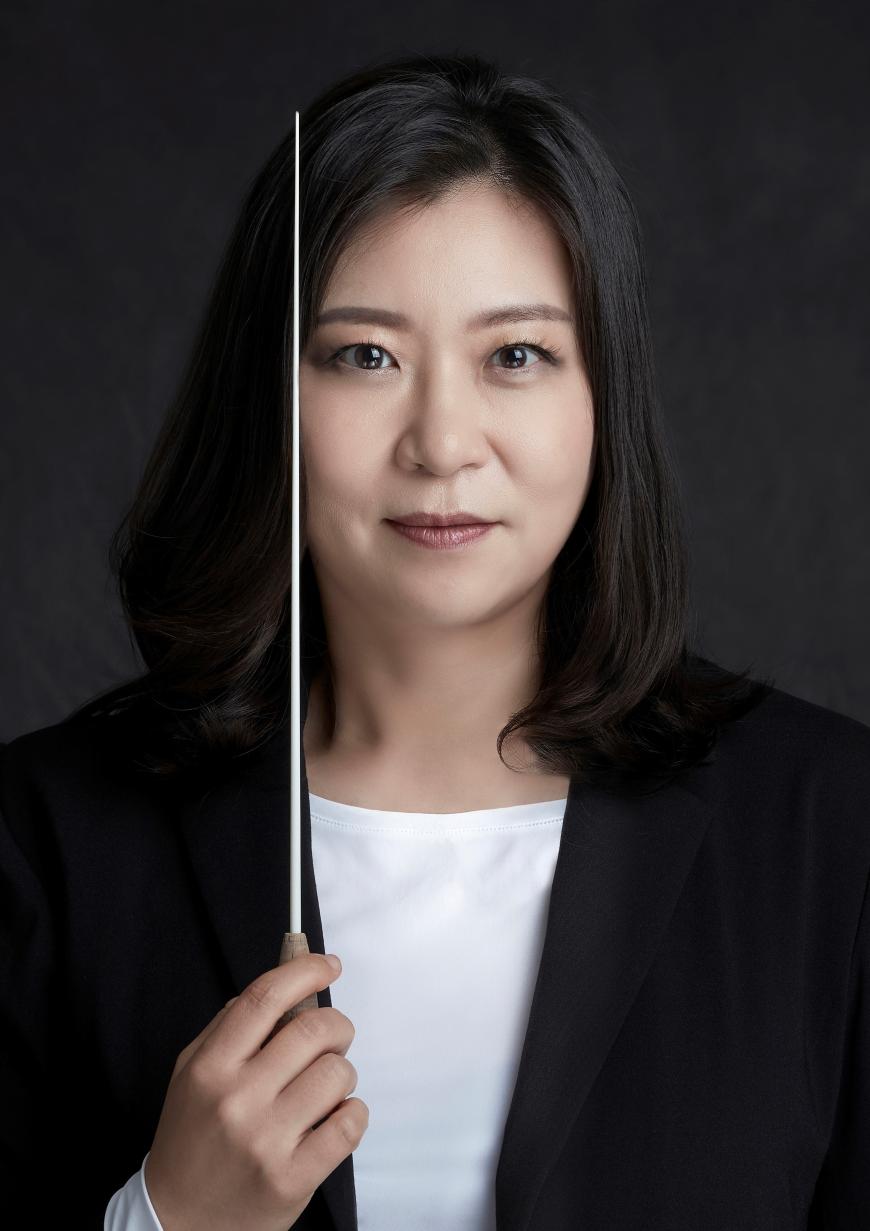
What are your thoughts on women conductors being more prominent these days?
For me, I [used to have] this feeling [that] I had to prove myself as female conductor. I don’t usually think at the podium when I stand there, “I’m female,” or, “I’m a woman.” [To] the audience, someone who walks out onstage, this is not a familiar figure. I always tried to improve myself and tried to really show everything — every skill and every good thing about me and about women. It was a lot of pressure actually.
On the podium [now], you can see a lot of female conductors; they always do great performances. I think the pressure is gone. I feel a little more free standing on the podium, making music. This is a wonderful feeling.
Since you’re touring schedule is so heavy, I’m wondering what you do to relax in your down time.
I listen to jazz. I also like listening to Korean hip-hop, K-pop, [but] not the young generation, BTS. I like old-school K-pop. In general, they’re really sensitive songs. I also listen to classical music at home. If I don’t feel I have pressure, I go into the light music — jazz, smooth music.
I also go to hear music when I have time. When I stay in the same place, like Berlin, I go to concerts, operas. My dream is to conduct [Richard] Strauss’s Der Rosenkavalier. It’s one of my favorite operas; whenever I hear the third act, I have tears in my eyes.
What advice do you have for aspiring conductors — especially women conductors?
A lot of women enter this field and think they need to change their demeanor in order to be taken seriously, but musicians can see through it. I recommend to be yourself and show everyone why you’re the best at what you do. I think this is the best way to make a career. That’s the advice.
I didn’t have anyone around me — especially females. My professor died when I started in Boston; I didn’t have any close mentors. To have a mentor around you and to ask anything, this is really a great connection and great opportunity. I’d advise young conductors: If you have someone around you, ask something, use this opportunity. If you are in a career [and] after 10 years, there’s no one around you that can give you advice, start to ask now.




